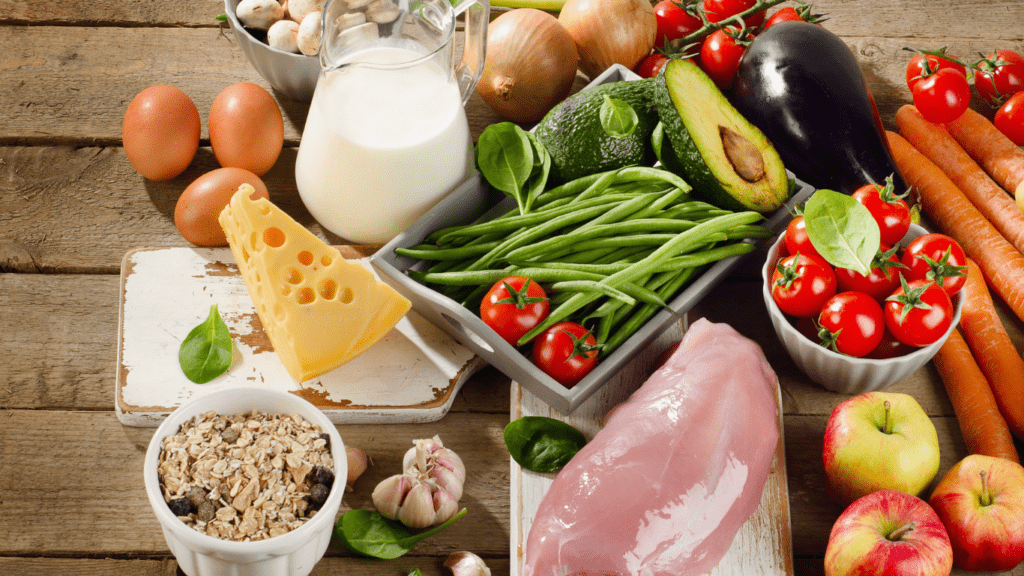Understanding Endurance Nutrition
Endurance athletes thrive on strategic nutrition. Tailoring dietary intake directly impacts performance and overall energy levels.
The Role of Nutrition in Endurance Training
Nutrition fuels training and competition phases. Carbohydrates serve as the main energy source during endurance activities like marathon running, providing sustained glucose release. Proteins support muscle repair and recovery, crucial after long-distance sessions. Fats, although slower to convert to energy, offer extensive fuel reserves for prolonged efforts. Prioritizing nutrient-dense foods ensures a balance of vitamins and minerals, facilitating optimal bodily functions and immunity.
Common Nutritional Challenges for Marathoners
Hydration significantly impacts performance yet is often overlooked, with dehydration leading to fatigue and cramping. Gastrointestinal issues arise from improper timing or food selection before runs. Energy depletion, when glycogen stores run low, curtails performance. Eating unfamiliar foods increases the risk of digestive distress. Managing these challenges requires planning and awareness of individual dietary responses.
Essential Nutrients for Endurance
Understanding essential nutrients is crucial for marathoners and long-distance athletes. Focusing on carbohydrates, proteins, and fats optimizes energy utilization and recovery.
- Carbohydrates: The Energy Powerhouse
Carbohydrates serve as the primary energy source during endurance activities. Consuming 6-10 grams of carbs per kilogram of body weight daily supports glycogen stores. For instance, marathoners might include whole grains, fruits, and vegetables in their meals to enhance stamina. Timing is vital; ingesting carbs 3-4 hours before a long run maximizes glycogen availability.
- Proteins: Building and Repairing Muscles
Proteins aid in muscle repair and growth. Endurance athletes should aim for 1.2-1.7 grams of protein per kilogram of body weight each day. Foods like lean meats, eggs, and legumes are excellent protein sources. Consuming protein within 30 minutes post-exercise accelerates recovery and reduces muscle soreness.
- Fats: Sustained Energy Source
Fats offer a dense energy reserve crucial for prolonged activities. Athletes should get 20-35% of their total daily calories from healthy fats. Sources such as avocados, nuts, and fatty fish provide sustained energy. Incorporating fats helps maintain energy levels during long training sessions, balancing caloric intake without over-relying on carbohydrates.
Pre-Event Nutritional Strategies
Focusing on the right nutritional strategies before an event can significantly impact performance for marathoners and long-distance athletes. Understanding carbo-loading and hydration practices ensures athletes enter events fully energized and ready.
Carbo-Loading: Myths and Facts
Carbo-loading, often misunderstood, requires more than consuming large amounts of pasta or bread the night before a race. Effective carbo-loading involves gradually increasing carbohydrate intake over several days while slightly tapering training.
This strategy boosts glycogen stores without causing bloating. Contrary to myths, it’s not about overindulging the night before, which can lead to discomfort on race day.
Instead, maintaining a consistent intake of 8-10 grams per kilogram of body weight each day is optimal, focusing on nutrient-dense sources like:
- whole grains
- fruits
- vegetables
Hydration: Maintaining Fluid Balance

Hydration is crucial for maintaining performance and preventing dehydration or overhydration. Starting the race well-hydrated enhances endurance and regulates body temperature. I emphasize regular fluid intake throughout the days leading up to the event, not just on race day.
Monitoring urine color is one way to gauge hydration status, aiming for a light yellow as an indicator of adequate hydration. Including electrolytes, like sodium and potassium, in beverages can help maintain fluid balance, especially when sweating heavily. Avoiding excessive caffeine and alcohol is also recommended, as they can dehydrate the body.
Nutrition During the Race
Fueling effectively during a race boosts endurance and prevents fatigue. Proper nutrition choices help sustain energy levels and optimize performance.
Energy Gels and Bars: What to Choose
Choosing the right energy gels and bars during the race provides quick carbohydrates and maintains energy. Look for gels with 20-30 grams of carbohydrates per serving, as this amount aids in replenishing glycogen stores without overwhelming the stomach.
For bars, opt for those containing both carbohydrates and protein. Products with a mix of simple and complex carbohydrates offer immediate and sustained energy release. Test different brands and flavors during training to identify what works best for your digestion.
Managing Electrolyte Levels
- Maintaining electrolyte balance is essential to prevent cramps and energy dips.
- During races, I ensure electrolyte intake matches the sodium and potassium lost through sweat.
- Many sports drinks offer a convenient way to replace these nutrients, with a standard sodium concentration of 300-600 mg per 12-ounce serving.
- Consuming electrolyte tablets or capsules can also supplement electrolyte levels, especially in hot or humid conditions where sweat loss increases.
- Regularly monitor electrolyte changes, adjusting intake based on environmental factors and personal sweat rate.
Post-Event Recovery Nutrition
Post-event nutrition plays a crucial role in speeding up recovery and helping athletes regain their strength after intense long-distance events. The right food and drink choices can reduce muscle soreness, replenish energy stores, and rehydrate the body.
Refueling with Proteins and Carbs
In recovery, combining proteins and carbohydrates effectively helps repair muscles and replenish glycogen stores. I suggest having a meal or snack within 30-60 minutes after finishing a race, focusing on a ratio of 3:1 carbohydrates to protein.
For example, a sandwich with turkey and whole-grain bread offers a balanced mix of these nutrients. Including at least 15-25 grams of protein and 45-75 grams of carbohydrates in this recovery period optimizes muscle repair and energy restoration.
Importance of Rehydration
Rehydration is vital for restoring fluids lost during a marathon. I recommend drinking 16-24 ounces of fluid for every pound lost during the event, adjusting for how much you sweat.
Using electrolyte-enhanced drinks helps replace lost sodium and potassium, ensuring proper hydration balance. Coconut water or sports drinks can be effective choices for restoring electrolytes and fluids simultaneously. Make sure to monitor your urine color; it should be light yellow, indicating proper hydration levels.
Personalized Nutrition Plans
Creating a personalized nutrition plan can maximize endurance performance, as individual needs vary widely. I collaborate with experts to fine-tune my diet to meet the specific demands of marathon and long-distance events.
Working with a Nutritionist
Consulting a nutritionist provides tailored insights into my dietary requirements, considering factors like body type and activity level. A nutritionist evaluates my nutritional status using tools like blood tests and diet assessments.
They help design meal plans that align with my training regimen and personal preferences. This collaboration helps prevent common issues like energy depletion and gastrointestinal discomfort during and after events by ensuring my intake of vital nutrients is balanced.
Monitoring and Adjusting Your Intake
Constant monitoring of dietary intake ensures optimal performance. I track nutrient consumption using food diaries or apps, observing energy levels and digestion.
Based on these observations, I adjust macronutrient ratios and hydration strategies. For instance, I may increase carbohydrate intake if fatigue sets in or recalibrate electrolytes under hot conditions. Analyzing this data allows me to refine my nutrition plan, making informed decisions on what to modify to achieve maximal endurance benefits.





